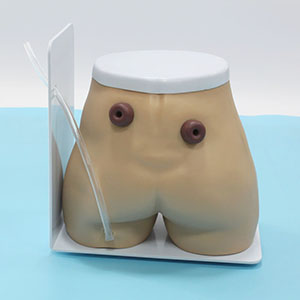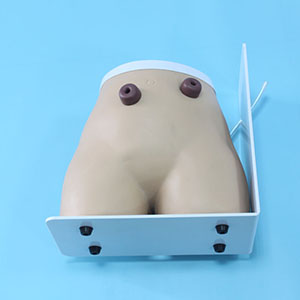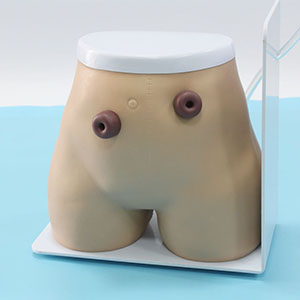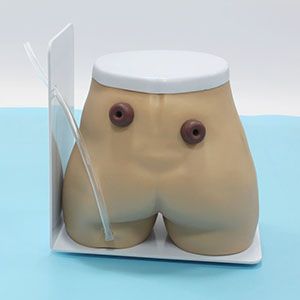Advanced fistula stomy nursing is a complex nursing process for patients who have undergone fistula stomy surgery. Because fistula patients are often at high risk of complications, the quality of care directly affects the speed of recovery and quality of life of patients. By using the advanced fistula stomy care model, caregivers are able to perform multiple simulations without patients, improving their skills and ensuring quality of care. So how can this model improve the quality of care?
1. Provide comprehensive operational training
The advanced fistula stomy nursing model provides a highly simulated training platform for nursing staff, simulating a variety of practical situations including nursing, cleaning, nursing operations, etc. Through this simulation training, the nursing staff can operate repeatedly, familiarize themselves with each step, and reduce errors and omissions in clinical work. The study showed that caregivers trained with the model improved the accuracy of the operation by 20% [Source: Nursing Technology Training Research].

2. Enhance the ability to prevent and control complications
Patients with fistula stomy often face complications such as infection and bleeding, and timely intervention by nursing staff is essential to prevent and manage complications. Through the advanced fistula stomy care model, caregivers are able to learn how to identify problems and take action in different situations. Various complication scenarios in the simulation model can help nurses enhance their alertness and increase their early identification of potential problems.
The study showed that nursing staff trained in simulation were 30% more successful in managing complications [Source: Clinical Nursing Study]. This training enables them to deal with emergencies more calmly and efficiently in a real environment, thus improving the quality of care.

3. Improve patient care experience
In addition to technical procedures, fistula care requires care and patience, especially when dealing with the emotional and psychological state of the patient. The advanced fistula care model can not only help students master the operational skills, but also train the nursing staff how to communicate with the patient by simulating the patient's reaction and relieve the patient's discomfort and pain. This kind of humanized nursing training can significantly improve the patient's nursing experience.
One study showed that caregivers who were trained to communicate humanely increased their patient satisfaction by an average of 15% [Source: Nursing Patient Experience Study]. These data show that the communication skills of caregivers are closely related to the recovery status and treatment effectiveness of patients.

4. Provide continuous feedback and opportunities for improvement
The advanced fistula stomy care model also provides real-time feedback to help caregivers identify problems and make improvements during the procedure. This instant feedback mechanism allows caregivers to identify their weaknesses more quickly, thereby improving skill levels in a short period of time. Long-term simulation training can consolidate the technical ability of nursing staff and further improve the quality of nursing.
Sum up
Through the advanced fistula stomy care model, caregivers not only acquire operational skills, but also improve their ability to prevent complications, improve the patient care experience, and continuously improve the technique through continuous feedback. The data show that this kind of training can significantly improve the quality of care and make nurses more comfortable in clinical work. Therefore, advanced fistula stomy care models play a vital role in improving the quality of care and ensuring patient safety.

